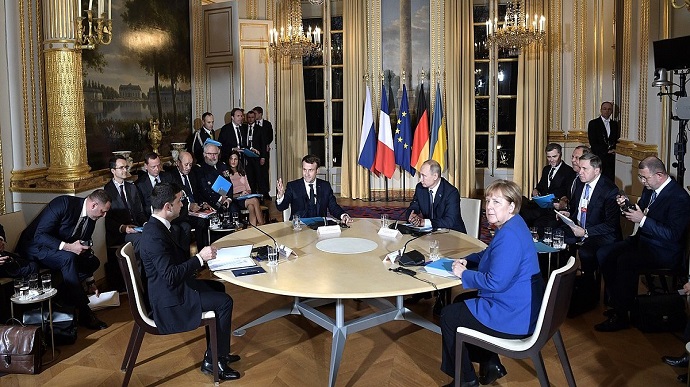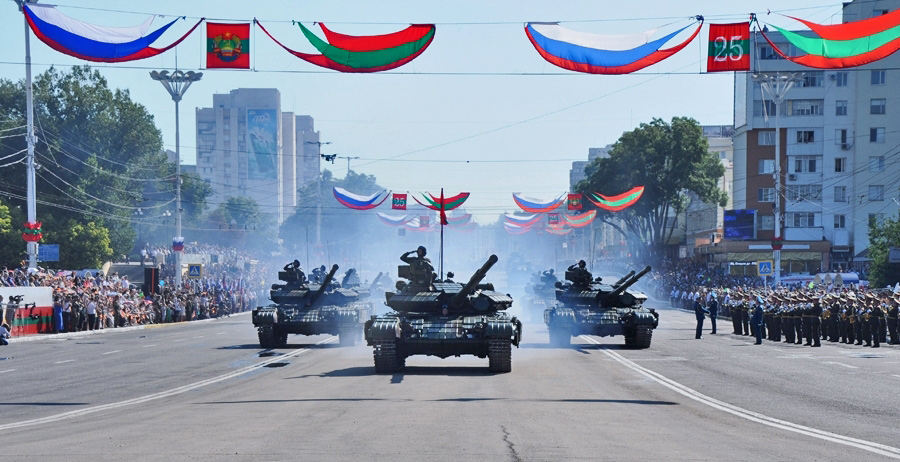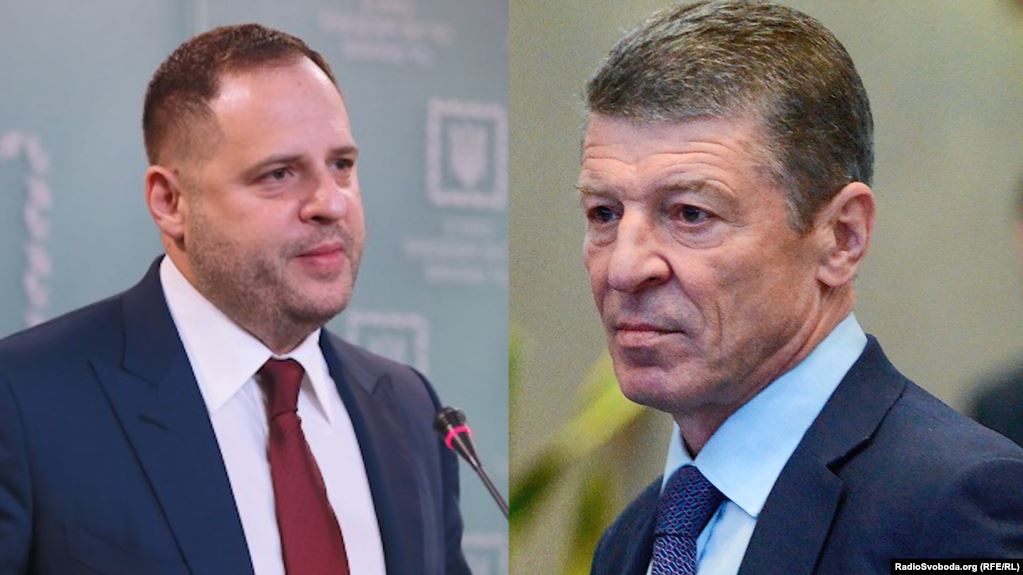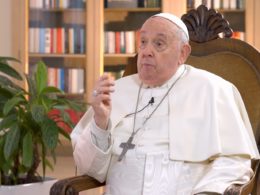Messages expressed by Kremlin negotiators before and after the NATO-Russia talks differ significantly.
Before, Russian negotiators were presenting Russia as a powerful state defending its “sphere of influence” like in the Cold War times, demanding NATO to recognize Russia’s version of “security guarantees,” “pack up their stuff and return to the 1997 borders,” as Russian main negotiator, Deputy Foreign Minister Sergei Riabkov, put it.
After the talks, he recognized that “the United States and its allies are actually telling us no,” adding that Russia sees little perspective for future talks.
Russia’s goal was, by demanding obviously unrealistic “security guarantees,” to receive at least partial concessions from NATO, i.e. decrease in military aid to Ukraine or a decrease in NATO military presence on its eastern flank.
In reality, the opposite happened: military aid to Ukraine increased, NATO reaffirmed its policy of open doors, Sweden and Finland emphasized they can apply for NATO at any moment when they think it reasonable, the US senate started considering more sanctions for the Kremlin in case of further invasion in Ukraine.
What does all this mean? That despite confident, attacking rhetoric, Russia did not secure diplomatic victory, Serhiy Sydorenko, Ukrainian expert in international relations wrote.
“Thanks to the blackmail strategy, Russia could start to set the agenda for security discussions – but has not been able to influence any decision. Russia is talked about now, which could make it seem that its international weight has grown, but Russian diplomats have had to go to partners for all the meetings, so at least so far this has not been the dialogue of equal partners that the Kremlin dreams about. The West is ready to listen Russian arguments but only listen, and say ‘no’ to all the Kremlin’s wishes.”
However, both Ukrainian soldiers on the frontline, as well as Sydorenko, think a full-scale offensive is unlikely, especially after the recent messages of the US and NATO, demonstrating readiness to hit Russia with painful sanctions.
More plausible are some local military operations combined with domestic Russian propaganda to support the common Kremlin narrative that Russia is surrounded by enemies while strongman Putin is effectively protecting Russians.

Talks between the United States and Russia were held on 10 January 2022 in Geneva. Deputy Foreign Minister Sergei Riabkov spoke on behalf of the Russian Federation, while deputy secretary of state Wendy Sherman presented the US side. The talks lasted for four hours.
On 12 January, subsequent NATO-Russia talks were the continuation of the previous round. Finally, on 13 January, an OSCE meeting took place in Vienna. All 57 members of the organization participated in the meeting, including Russia and Ukraine.
At the same time, this week NATO-Ukraine commission had a separate meeting while Ukraine and Georgia participated in the meeting of the Chiefs of Staff of the NATO Armed Forces.
Not all states are equal, Russia has its “sphere of influence” – the Kremlin’s narrative
“Fundamental differences in approaches to security have not allowed us to come up with specific decisions about further action,” Russian deputy Foreign Minister Aleksandrr Grushko explained.
What are the fundamental differences? Simply speaking, Russia perceives the world in the Cold War terms, i.e. that Ukraine and other states around Russia should allegedly respect Russian status as a great power and their status as “subsidiaries.”
This was confirmed by the words of Russian negotiators, who many times said they are concerned by NATO’s eastward expansion and that more and more states which “displaces Russia “to the role of subordinate.”
While this is what is actually happenning, especially after the 2014 Euromaidan revolution in Ukraine, Russia doesn’t want to accept the independent choice of other countries.
Riabkov stated on this matter before the talks:
“In the last decades, NATO has been seeking to ‘displace’ our country if not to the role of a subordinate, then at least to the secondary role in European and international politics.”… “NATO must pack its stuff and return to the 1997 boundaries.”
Russia also used two further arguments to support this thesis which, in fact, are a lie:
- Russian negotiators said that NATO allegedly promised Gorbachev the alliance wouldn’t expand, which is not true and was debunked by Gorbachev himself.
- And also that Ukraine’s NATO membership would automatically mean NATO missiles be located dangerously close to Moscow, which is questionable since the distance from NATO member Latvia to Moscow equals that of from Ukraine’s eastern border.
Grushko also openly stated, that Ukraine should consider Russian interest about its relations with NATO, confirming the remnants of imperialism in contemporary Russian foreign policy:
“NATO’s open door policy must end. It is often said that this is freedom of choice – but freedom of choice does not exist as understood by our NATO partners. Because freedom of choice must not oppress the interests of others. And membership [of states, such as Ukraine – Ed.] in military alliances must take into account the interests of others [states, namely Russia — Ed.].”
Russia also maintains its narrative that only big states, such as US and Russia get to decide about foreign policy, while smaller states get to stay under foreign influence.
That is how Russia justified its military intervention in Kazakhstan, military alliance with Belarus, as well as 2014 offensive against Ukraine — by “liberating” all these states from “foreign influence.”

NATO’s open door policy
Not surprisingly, NATO with its open door policy can hardly find any common ground on talks with Russia.
“They [the Russians] were not able to respond to our proposals. These discussions were difficult. We spent four hours discussing a wide range of issues. They have expressed their security concerns, we have expressed ours. We saw that we did not have common approaches to the issues we discussed,” said NATO Secretary General Jens Stoltenberg.
Speaking about Ukraine, he made it clear that NATO’s doors remain open, as has been stated at many NATO summits and meetings, adding that
“Ukraine has already asked for NATO membership, and NATO allies have decided that we are ready to work with Ukraine on this. We support Ukraine in reforms, in the modernization of the Armed Forces so that they meet NATO standards.”
Stoltenberg stressed further after the talks that should Sweden, which currently is not NATO member but a close ally, apply for membership, it will receive it soon given the volume of contemporary cooperation. This further illustrated the NATO open door policy which irritates Moscow.
So, will Russia respond to diplomatic failure by military escalation?
Officially, it strongly denies such a possibility:
“We do not have and can not have any plans to attack Ukraine,” Sergei Riabkov stated.
But US and Ukrainian intelligence say the risk is high, reporting about possible new provocations by Russia to “justify” an invasion.
The OSCE is of the same opinion:
“It seems that the risk of war in the OSCE area is now greater than ever before in the last 30 years,” Polish Foreign Minister Zbigniew Rau said, launching his country’s yearlong chairmanship of the 57-member security organization.
However, judging from the talks themselves, Russia appeared to be interested in the dialogue, at the very least showing itself as an exclusively peaceful country, Sydorenko mentions:
“Leaving aside the sometimes ridiculous rhetoric of Russian Foreign Minister Lavrov about Russia’s special role in the world – Russia made a constructive impression on the NATO negotiators. It conducted a dialogue… and even, as NATO Secretary General Jens Stoltenberg publicly assured, did not rule out the withdrawal of troops from the border with Ukraine.”
It remain unclear how ready the Russians are to fight in Ukraine if Putin orders them to attack. It is clear, however, that Ukrainians are ready to resist:
Ahead of Russia-U.S. talks, worldwide rally demands “a clear no to Putin’s imperial policy”
Ukraine’s Territorial Defense volunteers prepare to support army in case of Russian invasion








